After the collapse of the Berlin Wall at the end of the 1980s, after the Soviet troops left Afghanistan, and the rapid collapse of the socialist camp no longer aroused any doubts or sympathy, the Western world, led by the United States, solemnly proclaimed the victory of liberal democratic ideas and formation of a new geopolitical foundation with unipolar and uncompromising dominance.
Perhaps one of the most accurate definitions of the events of that time is considered to be the Hegelian concept of the “end of history”, quite successfully described by the American philosopher and political scientist Francis Fukuyama. In his famous essay “The End of History?” he considers the wide dissemination of the liberal-democratic concept of the Western model as the end point of the socio-cultural evolution of man. He claims this as a result of which the world will completely get rid of ideological confrontations, global revolutions and wars, but along with them – and from the pleasure in the development of art and philosophy.
In this idea, the concept of the global remains decisive, since at a more local level – that is, intrastate or interstate – no one expected to achieve a complete idyll in relations. The world economy faced a serious recession, Eastern Europe experienced a series of “velvet revolutions”, the Soviet Union stood on the threshold of disintegration, and in the African and Middle East regions, seeds of new conflicts were constantly ignited.
At the same time, a new information era was also developing in parallel with geopolitical processes. Along with them more and more attention was paid to such concepts as political correctness, freedom of speech, freedom of choice and other similar principles that determined world trends for the coming decades. The “Baby Boomers” generation (people born between 1946 and 1964), gradually ascending to power, struggled to get rid of the ideological burden of the Cold War era, happily accepting all the blessings of the new free world.
Unfortunately, the hopes that the development of the Internet will expand access to information and significantly increase the level of intelligence among the majority of the inhabitants of the planets have been dashed against the reality of total degradation and zombification, which has become one of the clear results of the information age. As a result, the blurring of the basic principles of morality, the social structure of society, the lack of moral authorities and the widespread substitution of these factors through the popularization of social networks, the creation of virtual reality and the promotion of digital degradation.
If even 400 years before our era Socrates said “I know that I know nothing”, then the expression “we do not know that we know nothing” can become the motto of modern societies. On the other hand, it is precisely this approach to be used for educating a new generation that has become ideal while implementing the “end of history” concept. Society (mostly European) received a period of calm and peaceful existence but paid a very high price for it.
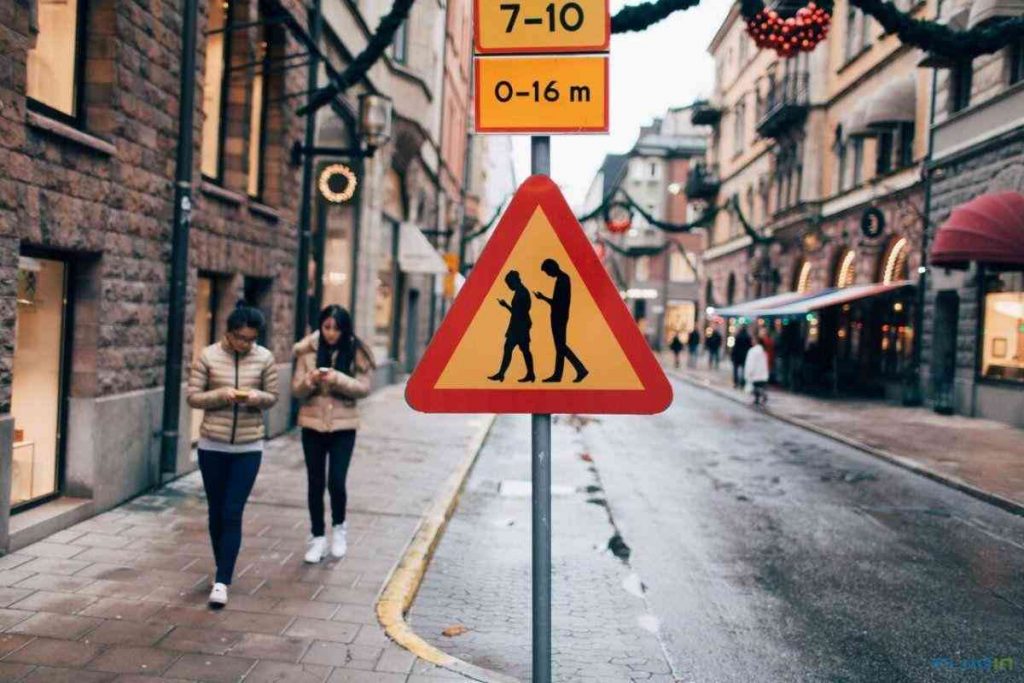
In fact, thanks to the steady functioning of international structures such as the United Nations (UN), the European Union (EU), the North Atlantic Alliance (NATO), the World Trade Organization (WTO) and others, the world community has finally managed to put in place the principles of the post-war world order based on the postulates of the Yalta Conference, the Treaty on the Non-Proliferation of Nuclear Weapons and the Helsinki Accords. Globally, an unspoken taboo on starting full-scale wars, creating geostrategic threats, changing the borders of sovereign states, and also attempts to challenge unipolar geopolitical dominance has appeared.
At the same time, the very concept of the “end of history” – or its main meanings, which consist of the establishment of liberal democracy on a global scale – faced a new challenge. It can be characterized as the monopolization of not only the right to determine true democratic principles but also the right to use violence against those who do not comply with these principles.
In December 1989, the US invaded Panama (Operation Just Cause). In addition to protecting 35,000 American citizens and restoring democracy in the region (which was the official reason for launching the operation), it finally resolved the issue of American control of the Panama Canal. Also, the newly elected President of Panama, Guillermo Endara Galimani, launched a massive campaign to combat the cult of ex-president Omar Torrijos, who actively advocated the nationalization of the Panama Canal and enjoyed the support of a significant part of the local population. The intervention of the US military is notable in that it is considered to be the first such operation, the conduct of which was justified by the US government as “the need to restore democracy.”
Roughly the same time, the method of creating a coalition of democratic countries that pursued common economic or political goals was used. For example, Operation Just Cause became the reason for a vote in the UN Security Council on a resolution condemning the US invasion of Panama. Despite the support of 15 member states for the resolution, the US, France and the UK used their “veto” to block it.
Further, under the pretence of restoring democracy, a vote was taken through the UN Security Council in support of Operations Restore Hope and Continue Hope in Somalia in 1992. Two years later, in 1994, with the help of a similar vote, the US military intervened in Haiti. In 1995, an agreement was signed at the US military base in Dayton to end the war in Bosnia and Herzegovina. The last military operation in Europe in the 20th century was Operation Allied Force, the bombing of Yugoslavia by NATO troops in 1999. Of course, this operation was also supported by a resolution of the UN Security Council.
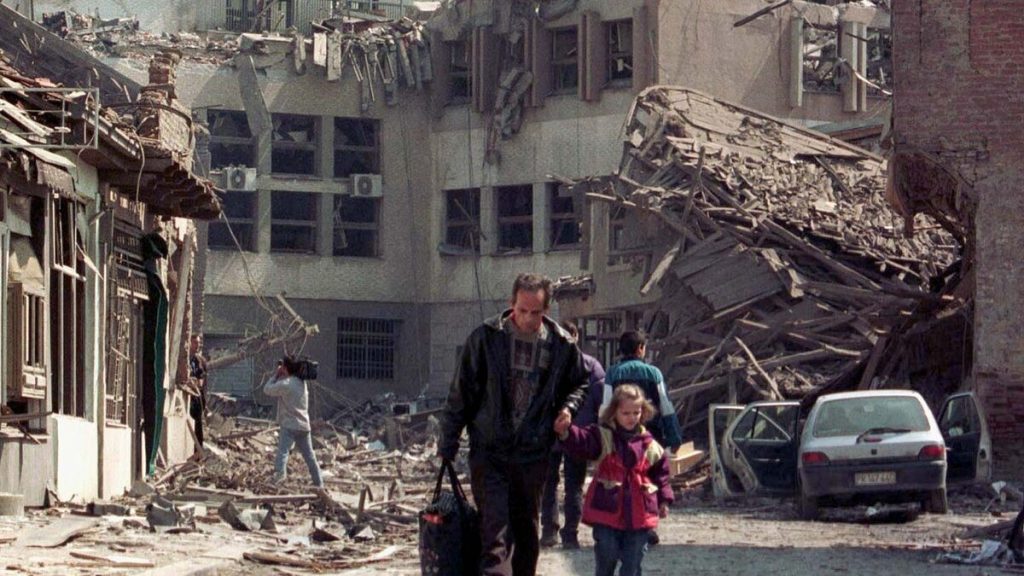
The above-mentioned military operations can be considered from a different angle, so as to discuss the legality of the use of force by certain participants in hostilities. But this article is not about that. This time was marked by two major components. First, it legitimized the monopoly on using force and finally secured this instrument for the United States and its allies. That is, unipolar dominance in the geopolitical arena has been confirmed in terms of strength. Secondly, it put an end to violations of the territorial integrity of European states. The West managed to resolve the issue with Yugoslavia, with the help of a series of “colour revolutions” Eastern Europe finally got rid of communism, and Russia, in turn, worked out the scenario of creating self-proclaimed republics, or the so-called enclaves of Russian influence on the sovereign territory of other states, using the example of Transnistria. This phase of local conflicts in Europe ended, and such calm was destined to last 14 years.
It was after the end of the war in Yugoslavia in Europe that the times came that best fit the definition of Fukuyama in his essay. The new era was marked by the strengthening of diplomacy and the active development of “soft power” technologies, with the help of which European leaders had to resolve all conflicts, as well as reach new agreements or, if desired, expand their influence in one direction or another. In fact, following the geopolitical concept of “Heartland”, it can be noted that the heart of the world for the first time in a long time remained calm and safe for almost 15 years. Any attempt at escalation by any state has always run into a bureaucratically complex, but even more reliable system of checks and balances. This state of affairs allowed the formation of a strong opinion that any threats beyond the existing agreements are nothing but a bluff. And even though such a democratic system was originally built on the well-known principle framed by George Orwell as “all animals are equal, but some animals are more equal than others”, it functioned well and demonstrated the ability to cope with global challenges.
As it turned out 15 years later, excessive confidence in a calm tomorrow played a rather cruel joke, first of all, on European states. At first glance, the reliable, and perhaps even flawless system of checks and balances, which is the European Union, has proved effective only in peacetime. Global upheavals, for which they were actively and in advance preparing both in Washington and in Moscow or Beijing, turned out to be absolutely unexpected for Brussels. Although it would be more correct to say that such a scenario on the world stage was repeatedly discussed at different levels in the European Union, it was never taken seriously because of the erroneous confidence in the architecture of the world that was built after the Second World War. At least, reports of several analytical centres, as well as regular post-releases of key European conferences and summits, testified to such moods of European politicians.
The relatively short period of calm (on a historical scale, 15 years is a very short period) was perceived by European leaders as something permanent. At the same time, even fifteen years was enough to create a generation of weak leaders and, at times, an infantile society. There is a well-known formula, said in the 60s of the last century by Dubai Sheikh Rashid ibn Saeed Al Maktoum: “My grandfather rode a camel, my father rode a camel, I drive a Mercedes, my son drives a Land Rover and my grandson drives a Land Rover, but my great-grandson will ride on a camel… Why is that? Tough times make strong people. Strong people create good times. Good times produce weak people. Weak people create hard times.”
Events that took place on the European continent for the last several years are the direct result of good times, which, unfortunately, have brought weak people to power. The last few decades have been a demonstration of the triumph of populism and the absolute rejection of the concept of “Realpolitik” proposed by Bismarck. In other words, while the United States was “promoting democracy” in third-world countries, Russia, violating all international rights, has created controlled quasi-states along its border. While China was colonizing the African continent, Europe continued to strive for liberalism, a free market and individual freedom, an open society and a consumer society responding to serious challenges only with “concern”.
When Vladimir Putin made his famous speech at the Munich Conference in 2007 and actually announced his intention to end the ‘Pax Americana’ – the unipolar world order led by the United States, his words were taken seriously only in Washington and Beijing, but not a single European capital betrayed this required value. As a result, in 7 years term, Europe received the first evidence that the good times are coming to an end. Unfortunately, Ukraine has paid the highest price for Europe’s carelessness.
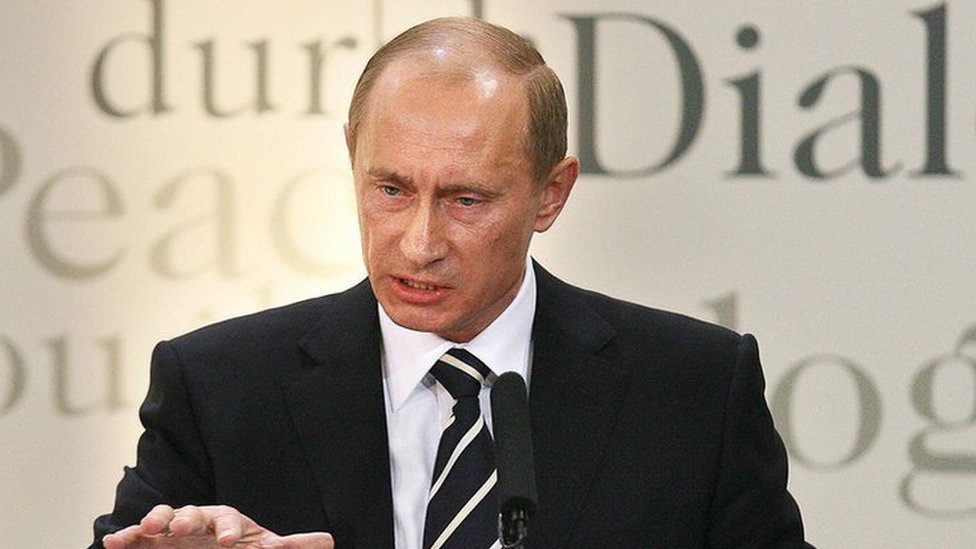
It is subject to long and restless discussions about when the world architecture that arose after WWII was first violated. Someone will say that the collapse of Czechoslovakia or the weak division of Yugoslavia became the first precedents that violated the Helsinki Accords, someone will appeal to other local conflicts. But the most important is the fact that before the annexation of the Crimean peninsula, the sovereign territory of Ukraine, by Russia – only the West had a monopoly on such actions, as well as a monopoly on any other global processes. And in this case, no matter how cynical it may sound, according to the principle “history is written by the winners”, victory in the Cold War and the establishment of Pax Americana gave the West a similar right, taking it away from others.
After the beginning of the war in the Donbas in 2014, the West accepted the challenge of Russia and realized that the global ambitions and absolutely barbaric approaches of the eastern hegemon pose a serious threat to world architecture and cannot be ignored. At the same time, Europe limited itself to another concern, believing that the level of well-being of society and maintaining the social standards of life of the average European is much more important than geopolitical issues. Hence the attempts to maintain the level of economic cooperation despite the sanctions, the total dependence on cheaper Russian energy resources and the unwillingness of European politicians to give up billions of shadow flows directed by Russia to lobby for their interests.
The eight-year conflict in Ukraine forced Europe to use the entire arsenal of diplomacy, concessions and compromises to maintain the state of affairs against which Russia used dirty and cynical methods, regardless of international law, human lives, or geopolitical principles. In many ways, the toothlessness of Europe led not only to the escalation of the conflict in Ukraine but also to the launch of the process of liquidating the system that was created and functioned properly on the European continent after the Second World War.
Russia’s full-scale invasion of Ukraine made it clear that Moscow felt the weakness of Europe and considered that it could go unpunished for the mass and brutal murders of civilians, the annexation of territories and the encroachment on the main principles of the rights and freedoms of European society.
Of course, one can appeal to the colossal assistance from the European states, which consists both in the provision of military equipment and weapons and in financial support. Still, is it possible to argue with the fact that the provision of such assistance eight years earlier or a tougher position regarding Moscow would help not only save thousands of human lives but also prevent those global shifts that are already noticeable on the world stage?
After 7 months of the war, it can be stated that Europe remains free not due to a well-built security system and the presence of strong military or political blocs, but thanks to the heroic actions of the Ukrainian military, which not only hold back the enemy’s superior army but also demonstrate a successful offensive potential.
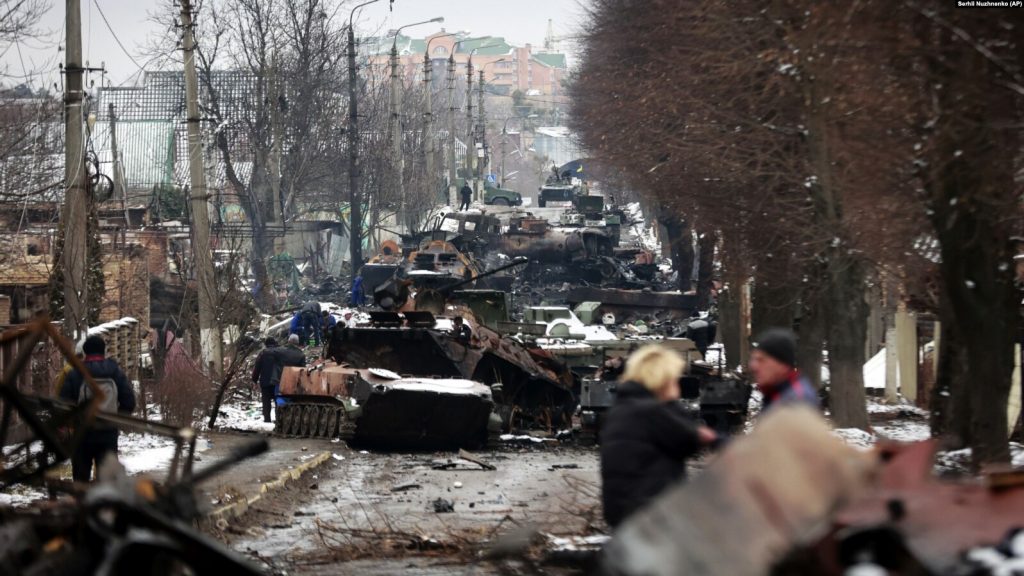
The transformation of the world order, albeit not with a change of poles, but definitely with their serious shift, began when Russia set foot on Ukrainian soil, annexed Crimea and occupied a part of the Donbas, receiving only “concern”, “worries” and the use of ineffective sanctions mechanism in response. Since February 24, this transformation has accelerated many times over. Of course, sooner or later the war will end, leaving many reasons for litigation, disputes and discussions, but in the new, post-war world, we will definitely see a completely different Europe, which has yet to face serious transformational processes.
Of course, no less serious transformations await Russia. By declaring war on the entire Western world, its values and principles, the Russian authorities not only accelerated the transformation processes in Europe but also significantly increased the demand for essential changes within Russia itself. The old elites, who built their power on dictatorship and the maximum restriction of rights and freedoms, gradually lost one of their most important tools – the monopoly on fear. Along with the stereotype of the “second army of the world”, many more myths have been dispelled, forcing us to look with fear towards Moscow and its actions in the geopolitical arena. At least in the public field, the world’s main citadel, with the latest arsenal of exclusive weapons (this is the image Russia has been trying to create since 2007), turned out to be very sham and clumsy in its actions. Several frank failures in the war against Ukraine may not have become a turning point on the battlefield, but they certainly created a distinct image of a loser country, a pariah country in the eyes of a significant part of the civilized world.
In general, the transformational processes promise to be very difficult for both Europe and Russia. The crisis of democracy, as well as the crisis of autocracy, will inevitably lead to the search for new formats of interaction and competition both in the domestic and foreign political arenas. The main threat to democracy is the violation of the rights and freedoms that Europe has already faced. The main threat to autocracy is the weakness of the regime, which Russia is already facing.
It is obvious that shortly the world is in danger of plunging into a stronger crisis, which will not play bright colours for any of the parties. So it is important to remember that “where dullness triumphs, blacks always come to power.”

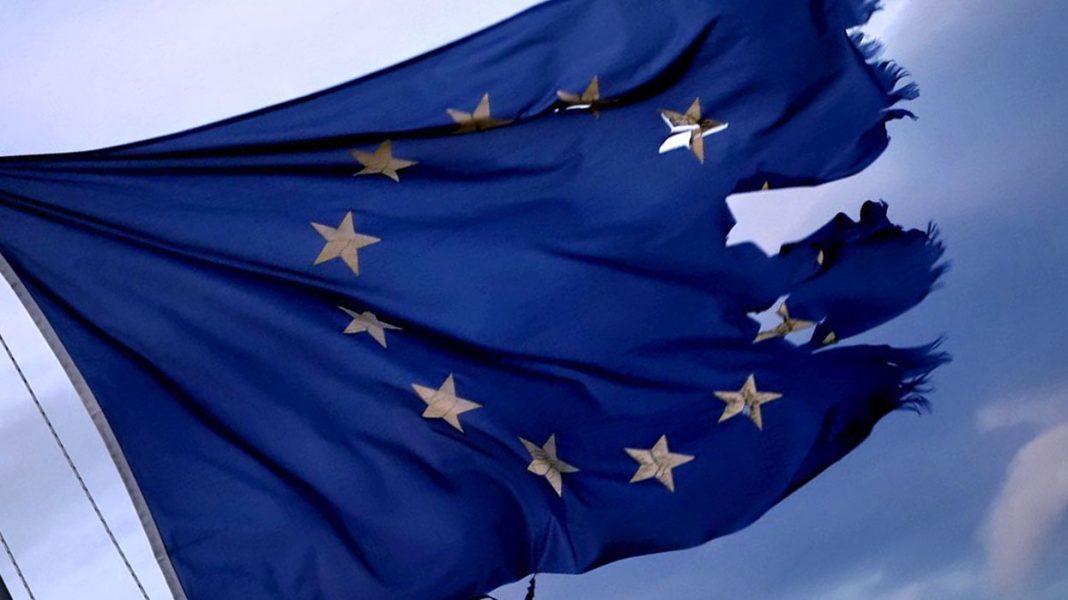

Wow, this write-up incredibly strike the nail upon the intellect!
I’ve been having difficulties with this matter for several years and it’s as a result fresh in direction of view another person particularly dive deep into the predicament and supply hassle-free products and
services. The illustrations oneself offered have been amazingly relatable and
I discovered myself nodding alongside as I read through in the course
of them.
A person factor that exceptionally resonated with me was the simple fact oneself manufactured pertaining to the relevance of self-treatment.
It’s hence simple in the direction of attain stuck up inside of the working day-toward-working day grind and overlook our private well being.
Yet as on your own rightly pointed out, using the year in direction of recharge and prioritize our psychological and actual physical fitness is imperative
if we need in the direction of be our least complicated selves.
I’m completely relocating towards try out utilizing some of the recommendations oneself
shared. Thank oneself for this instructive and inspiring article!
Наша компания Baikal-Wheels также предлагает высококачественные кованые диски на заказ и купить диски на авто в воронеже которые известны своей прочностью и легкостью, оптимизирующей динамические характеристики автомобиля. Приобретая продукцию в компании Baikal-Wheels, вы получаете не только качественные изделия от лучших производителей, но и высококлассный сервис с удобной доставкой прямо к двери.
Профессиональный сервисный центр по ремонту автомагнитол в Москве.
Мы предлагаем: починить магнитолу
Наши мастера оперативно устранят неисправности вашего устройства в сервисе или с выездом на дом!
В магазине сейфов предлагают сейф цена сейф в наличии
Если вы хотите подчеркнуть стиль своему автомобилю и обновить внешний вид, то на сайте baikalwheels.ru у вас есть возможность купить диски 18 радиус 5 114.3 известных мировых брендов. В каталоге представлены такие бренды, как Replika, Nitro, Legeartis и K&K, которые известны надежностью. Размеры варьируются от 16 до 22 дюймов, что помогает найти идеальные диски для любых автомобилей — от седанов до внедорожников.
Профессиональный сервисный центр по ремонту планшетов в Москве.
Мы предлагаем: замена матрицы планшета
Наши мастера оперативно устранят неисправности вашего устройства в сервисе или с выездом на дом!
Неважно, какая у вас кредитная история. кредит быстро без отказа доступны от 18 лет, ставка всего 0.8%.
Профессиональный сервисный центр ремонт экрана телефона сервис по ремонту телефонов
Минимальная ставка 0.8%! быстро займ на карту онлайн круглосуточно без отказа для всех от 18 лет доступны у нас, даже если есть просрочки!
В магазине сейфов предлагают купить сейф 2 класс взломостойкие сейфы 2 класса
Никаких отказов! Получите до 30 000 рублей на именную карту — наши займы онлайн срочно на карту без отказа доступны каждому.
That is very attention-grabbing, You are an excessively professional blogger.
I have joined your feed and look forward to searching for more of your magnificent post.
Additionally, I’ve shared your site in my social networks!
Профессиональный сервисный центр по ремонту бытовой техники с выездом на дом.
Мы предлагаем: сервисные центры в волгограде
Наши мастера оперативно устранят неисправности вашего устройства в сервисе или с выездом на дом!
Нужен срочный заём? Мы собрали МФО, которые выдают какие микрозаймы дают без отказа до 30 000 рублей на именные карты.
I do trust all of the ideas you’ve presented for your post.
They are very convincing and will certainly work.
Nonetheless, the posts are very quick for novices. May you please extend them
a little from subsequent time? Thanks for the post.
Тут делают продвижение продвижение клиники продвижение клиники
Тут делают продвижение разработка мед сайтов разработка сайта медицинской клиники
order metronidazole 200mg online cheap – buy cenforce 100mg pill buy cenforce paypal
займы онлайн на карту
В магазине сейфов предлагают взломостойкий сейф сейфы взломостойкие класса
Hey there! I could have sworn I’ve been to this website before but after reading through some of the post I realized it’s new to me.
Anyhow, I’m definitely delighted I found it and I’ll be book-marking and checking back often!
Обучение в DPM+ включает разработку планов, аналитику и практические занятия на основе реальных кейсов. Наша услуга аналитик продукта обучение идеально подходит для тех, кто стремится повысить свои навыки и освоить новые методы работы. Специалисты DPM+ помогут вам пройти все этапы разработки продукта, начиная с идеи и заканчивая успешной реализацией.
DPM+ предлагает всестороннее создание полезных продуктов для всех, кто хочет овладеть передовыми навыками и стать успешным проектным менеджером. Наша команда экспертов готова делиться опытом и поддерживать на каждом этапе обучения. Присоединяйтесь к нам и начните развивать свои навыки уже сегодня, чтобы добиться успеха в своей карьере!
Тут делают продвижение seo продвижение медицинских сайтов сео медицина
Тут делают продвижение создать сайт медицинского центра разработка сайта клиники
Профессиональный сервисный центр по ремонту бытовой техники с выездом на дом.
Мы предлагаем: сервис центры бытовой техники воронеж
Наши мастера оперативно устранят неисправности вашего устройства в сервисе или с выездом на дом!
Профессиональный сервисный центр сервисы по ремонту телефонов сервис ремонт телефонов
Ищете быстрый способ получить деньги? Займ на карту без отказа онлайн — это отличный выбор! Всё легко, и деньги поступили очень быстро.
The best https://bestwebsiteto.com sites on the web to suit your needs. The top-rated platforms to help you succeed in learning new skills
Тут делают продвижение создание медицинского сайта разработка сайт медицинского центра
Зима не за горами – выбирайте теплые угги с мехом, чтобы не мерзнуть!
Yeah bookmaking this wasn’t a high risk determination great
post!
I merely wanted to thank you once more for this amazing website you have created here.
It truly is full of useful tips for those who are seriously interested
in this particular subject, in particular this very post.
You really are all so sweet and also thoughtful of others
and reading your site posts is a great delight with me.
And thats a generous treat! Jeff and I will have pleasure making use of your suggestions in what we must do in a few days.
Our list is a kilometer long and tips will certainly be put to excellent use.
Профессиональный сервисный центр по ремонту моноблоков iMac в Москве.
Мы предлагаем: надежный сервис ремонта аймаков
Наши мастера оперативно устранят неисправности вашего устройства в сервисе или с выездом на дом!
generic clavulanate – cheap levothroid pills order levothyroxine pill
Awesome! Its actually awesome piece of writing, I have got much
clear idea concerning from this piece of writing.
Wow, this report particularly strike the nail upon the thoughts!
I’ve been battling with this subject for yrs and it’s as a result clean in the direction of perspective somebody very dive deep into the condition and offer you handy providers.
The illustrations yourself offered have been shockingly relatable
and I discovered myself nodding alongside as I examine during them.
A person point that incredibly resonated with me was the truth
by yourself created regarding the significance of self-treatment.
It’s therefore simple toward acquire stuck up inside the working day-in the
direction of-working day grind and forget about our personalized health and fitness.
Nonetheless as your self rightly pointed out, getting the year in the direction of recharge and prioritize
our psychological and actual physical fitness is imperative if
we need to have toward be our least difficult selves. I’m absolutely
transferring in direction of check out utilizing some of the ideas oneself shared.
Thank on your own for this useful and inspiring article!
Тут делают продвижение разработка медицинских сайтов разработка сайта медицинской клиники
Тут делают продвижение стратегия с роботами продвижение клиники
Gay Boys Porn https://gay0day.com HD is the best gay porn tube to watch high definition videos of horny gay boys jerking, sucking their mates and fucking on webcam
Профессиональный сервисный центр срочный ремонт телефонов москва ремонт экрана телефона
csgo gamble csgo betting
csgo gambling sites best csgo gambling sites
Профессиональный сервисный центр по ремонту сотовых телефонов в Москве.
Мы предлагаем: сервис смартфонов
Наши мастера оперативно устранят неисправности вашего устройства в сервисе или с выездом на дом!
Для правильного оформления изменений важно заказать проект перепланировки. Наши специалисты помогут составить проект с учётом всех норм и требований для успешного согласования.
Сервисный центр предлагает стоимость ремонта телевизора hiberg адреса ремонта телевизоров hiberg
Плохая кредитная история? Мы собрали лучшие МФО, которые выдают микрозаймы до 30 000 рублей даже при плохой КИ, с быстрым переводом денег 24/7.
Профессиональный сервисный центр по ремонту бытовой техники с выездом на дом.
Мы предлагаем: сервисные центры по ремонту техники в челябинске
Наши мастера оперативно устранят неисправности вашего устройства в сервисе или с выездом на дом!
csgo gambling sites cs2 gambling
order cleocin without prescription – brand indomethacin 50mg indomethacin 75mg without prescription
Начните массовую индексацию ссылок в Google прямо cейчас!
Быстрая индексация ссылок имеет ключевое значение для успеха вашего онлайн-бизнеса. Чем быстрее поисковые системы обнаружат и проиндексируют ваши ссылки, тем быстрее вы сможете привлечь новую аудиторию и повысить позиции вашего сайта в результатах поиска.
Не теряйте времени! Начните пользоваться нашим сервисом для ускоренной индексации внешних ссылок в Google и Yandex. Зарегистрируйтесь сегодня и получите первые результаты уже завтра. Ваш успех в ваших руках!
Профессиональный сервисный центр по ремонту сотовых телефонов в Москве.
Мы предлагаем: ремонт телефонов на дому
Наши мастера оперативно устранят неисправности вашего устройства в сервисе или с выездом на дом!
buy losartan for sale – cozaar online buy cephalexin canada
музей анимации в москве музей анимации в измайловском
order helium balloons Dubai https://helium-balloon-price.com
Платформа 1win предлагает широкий выбор спортивных событий, киберспорта и азартных игр. Пользователи получают высокие коэффициенты, быстрые выплаты и круглосуточную поддержку. Программа лояльности и бонусы делают игру выгоднее.
Профессиональный сервисный центр сервис ремонта телефонов ремонт телефонов рядом со мной
delivery balloons Dubai helium balloons with delivery Dubai
Профессиональный сервисный центр по ремонту сотовых телефонов в Москве.
Мы предлагаем: сервисы по ремонту ноутбуков в москве
Наши мастера оперативно устранят неисправности вашего устройства в сервисе или с выездом на дом!
Сервисный центр предлагает поменять дисплей iconbit nettab matrix hd nt-0708m замена корпуса iconbit nettab matrix hd nt-0708m
balloons Dubai where to buy helium balloons Dubai
resume of an engineer technologist resume of a production engineer
Убедитесь в удобстве и простоте использования один икс бет. Здесь вас ждут отличные возможности для ставок, мгновенные выплаты и широкий выбор событий для каждого пользователя.
Somebody necessarily lend a hand to make severely posts I would state.
This is the first time I frequented your web page and up to
now? I surprised with the research you made to create
this particular put up amazing. Magnificent activity!
Профессиональный сервисный центр по ремонту духовых шкафов в Москве.
Мы предлагаем: ремонт духовых шкафов в москве на дому
Наши мастера оперативно устранят неисправности вашего устройства в сервисе или с выездом на дом!
Заблокировали сайт? Воспользуйся мостбет зеркало сайта и будь всегда в игре. Твой успех зависит от твоих действий — действуй быстро и наслаждайся ставками без преград!
Nice post. I learn something totally new and challenging on sites I stumbleupon everyday.
It will always be interesting to read through articles from other writers and practice a little something from other web sites.
The Beginning of the History? | Ascolta
https://dranileye.com/2018/07/30/lasik-training-under-dr-rupal-shah/
Мостбет официальный сайт зеркало — твой ключ к беспрерывным ставкам. Заблокировали? Не беда, заходи через зеркало и продолжай выигрывать с максимальной скоростью!
Строительство загородных домов
под ключ – это процесс возведения дома с нуля до полной готовности, включая все этапы
проектирования, строительства и отделки, без участия заказчика.
кладка перегородочного кирпича цена
Thanks for finally talking about > The Beginning of
the History? | Ascolta < Liked it!
Сервисный центр предлагает мастерские ремонта посудомоечных машин maunfeld починка посудомоечных машин maunfeld
autism treatment videos
Согласование перепланировки помещения в здании — это процесс, требующий тщательного планирования и знания нормативных требований. Наша компания предлагает профессиональную помощь в разработке проекта, подготовке технического заключения и согласовании изменений с соответствующими инстанциями. Мы гарантируем, что перепланировка будет узаконена быстро и без лишних проблем.
Нурсултан важные новости kazlenta.kz
Интригующие Финансовый гороскоп на 2021 год уже на нашем сайте. Мы постоянно пополняем свежую информацию о событиях, стараясь проверять её подлинность. Все главные события в сфере автомобилистики, новости, дтп, общество. Непременно сохраните наш публичный онлайн сайт и отправляйте знакомым. Только здесь все верные и вовремя отправленные новости о Казахстане.
Политика новости Казахстан kazlenta.kz
По запросу последние новости Костаная мы поможем Вам. Ровным образом здесь имеются такие направления, как: новости по районам, мировые, политика, общество, спорт, выбор редакции, автоновости и многие другие. Основные новости часа Вы сможете найти на главной странице онлайн портала kazlenta.kz прямо сейчас, а почитать новости отдельной темы можно выбрав её.
Спецтехника мировых брендов, предлагаемая компанией ООО «СТМБ», — это оборудование, проверенное временем и многими клиентами по всему миру. Мы предлагаем технику ведущих производителей, которая гарантирует надёжную и бесперебойную работу в любых условиях. В сочетании с нашим сервисом и поддержкой, ваша спецтехника всегда будет готова к выполнению самых сложных задач.
Строительная спецтехника от ООО «СТМБ» — это техника, которая поможет вам решать самые сложные задачи на строительных объектах. Мы предлагаем технику с высокой производительностью и долговечностью, что позволяет использовать её в любых условиях. Наша компания предоставляет полное техническое обслуживание, гарантию и лизинговые программы, что делает покупку техники ещё более выгодной для вас.